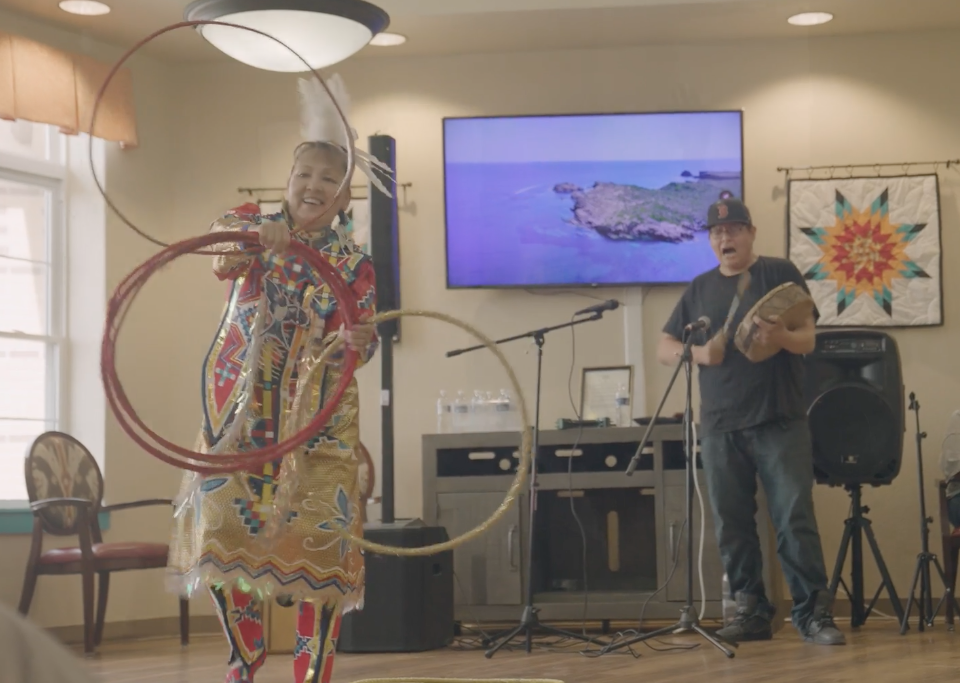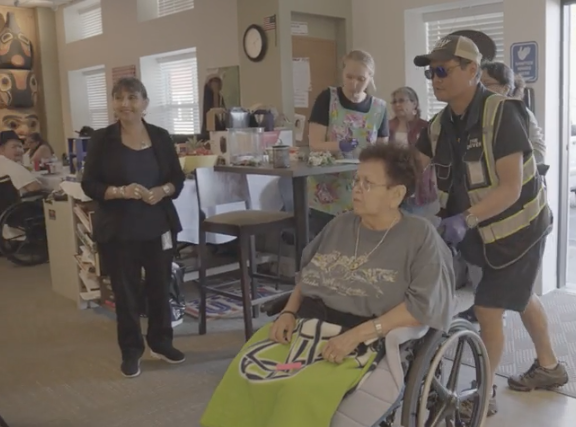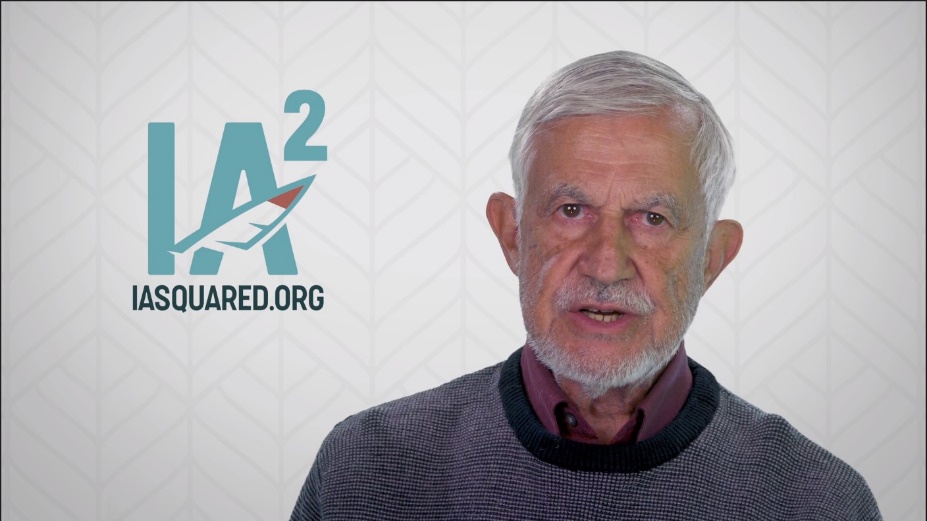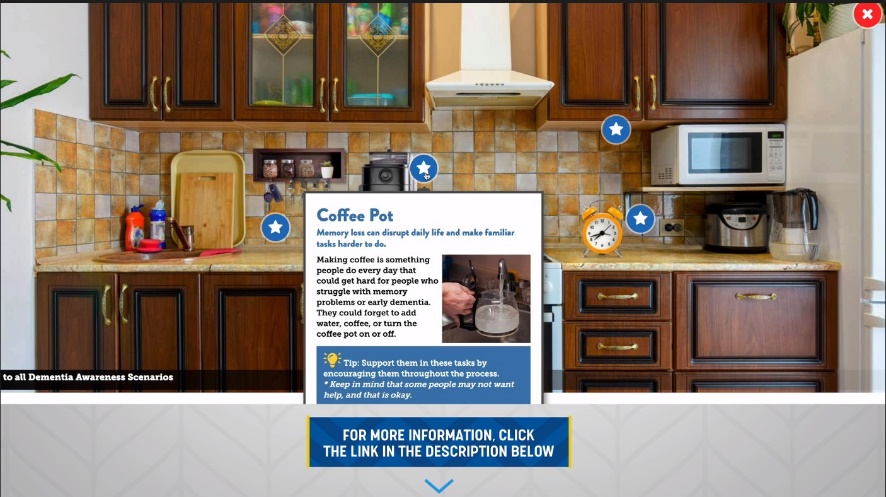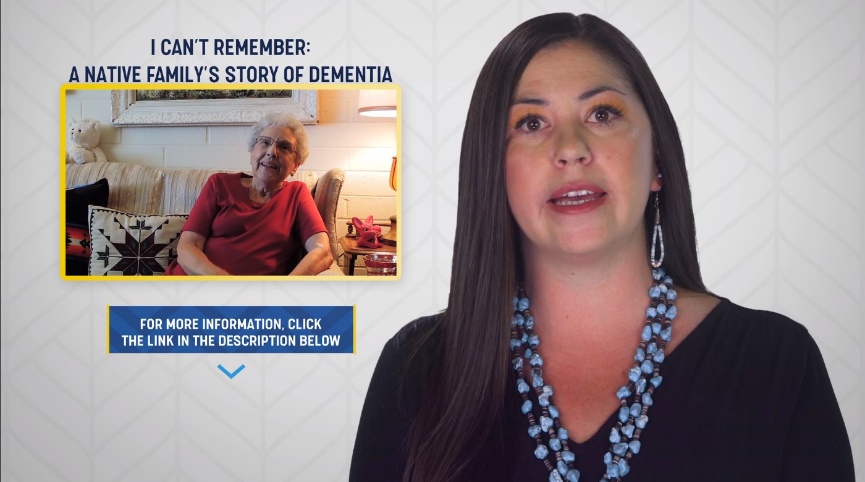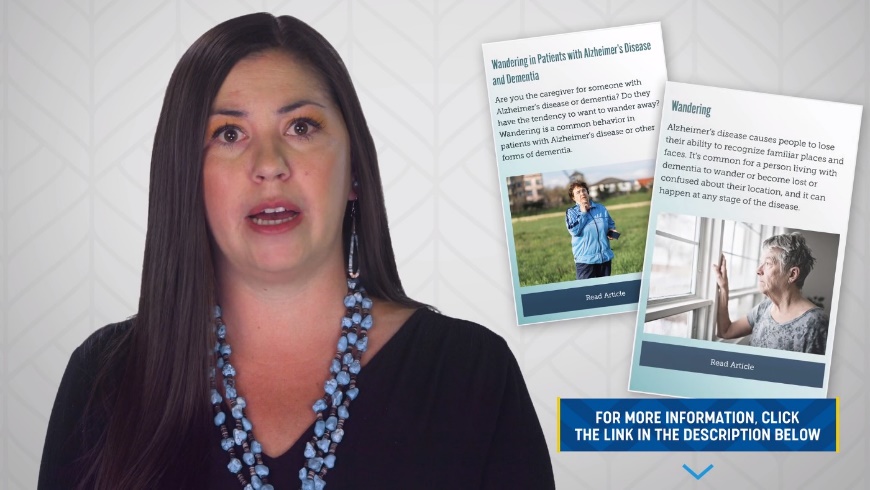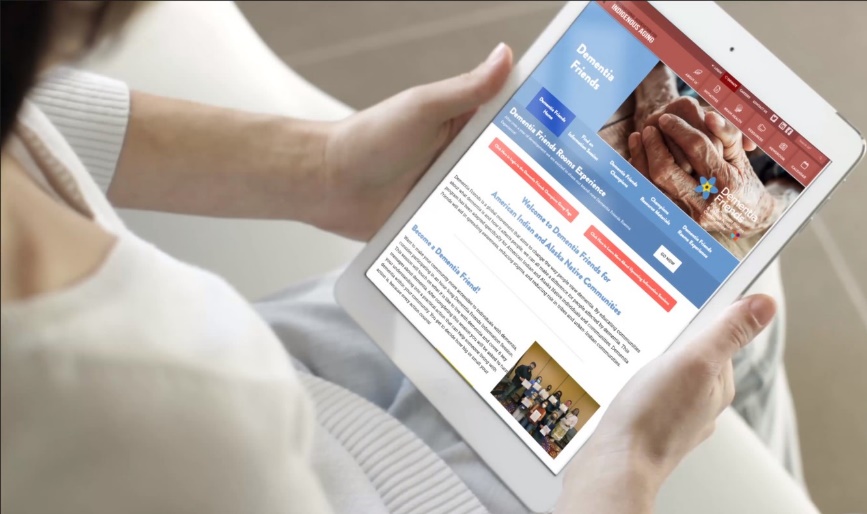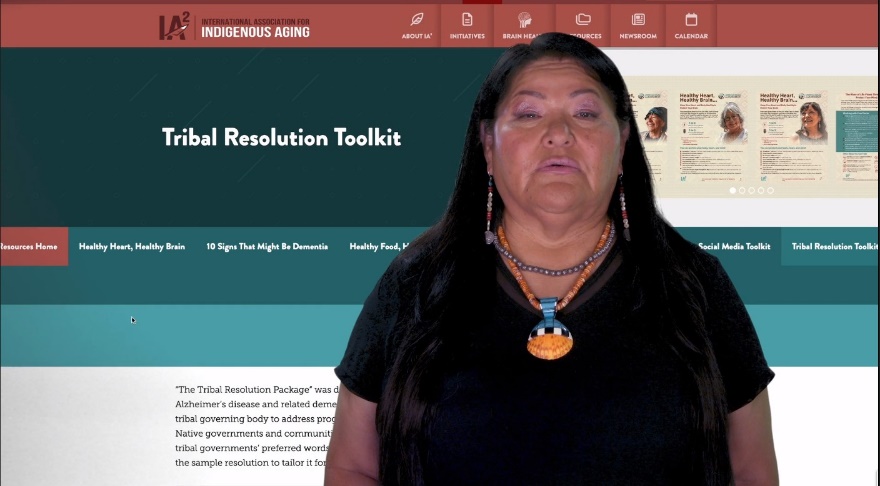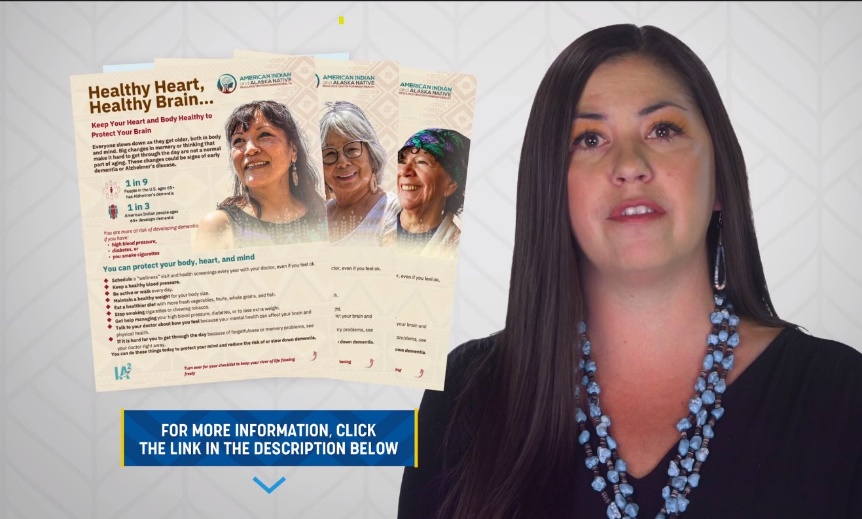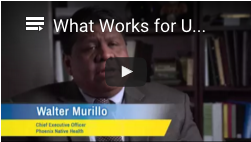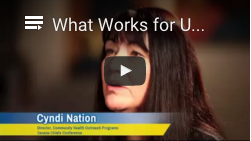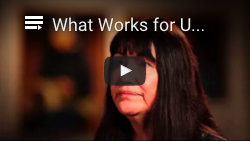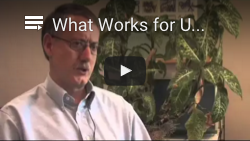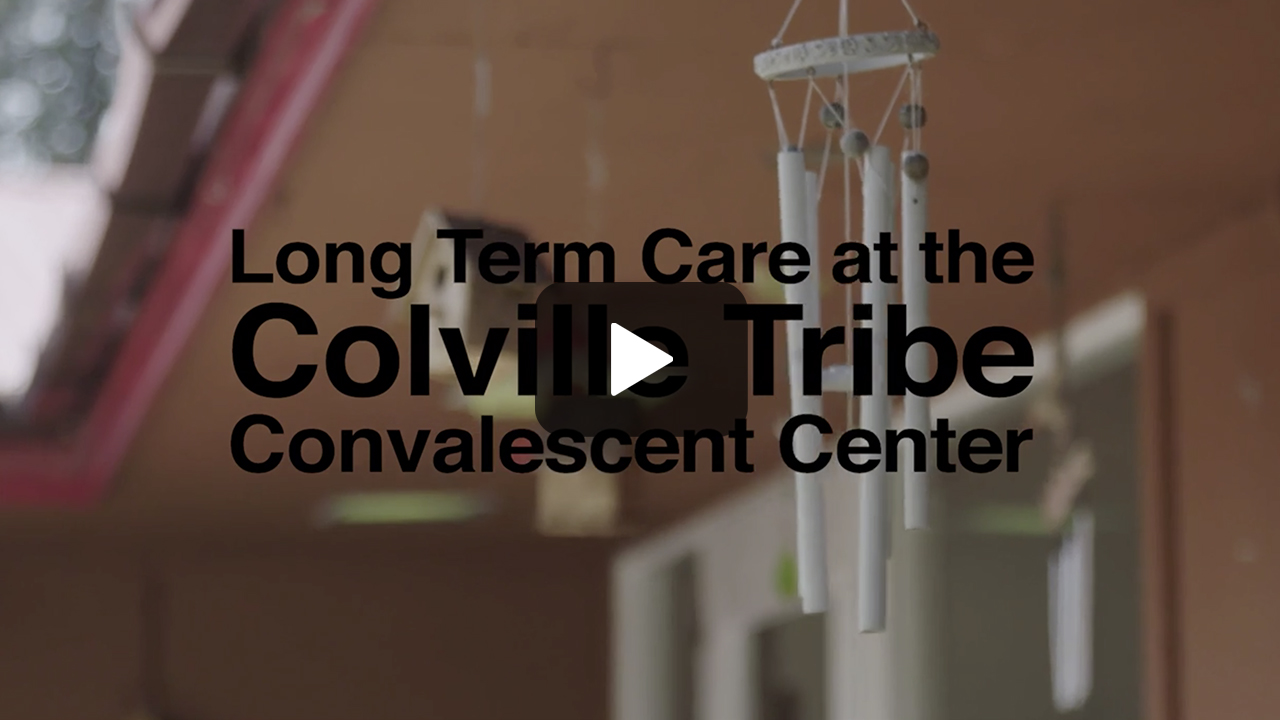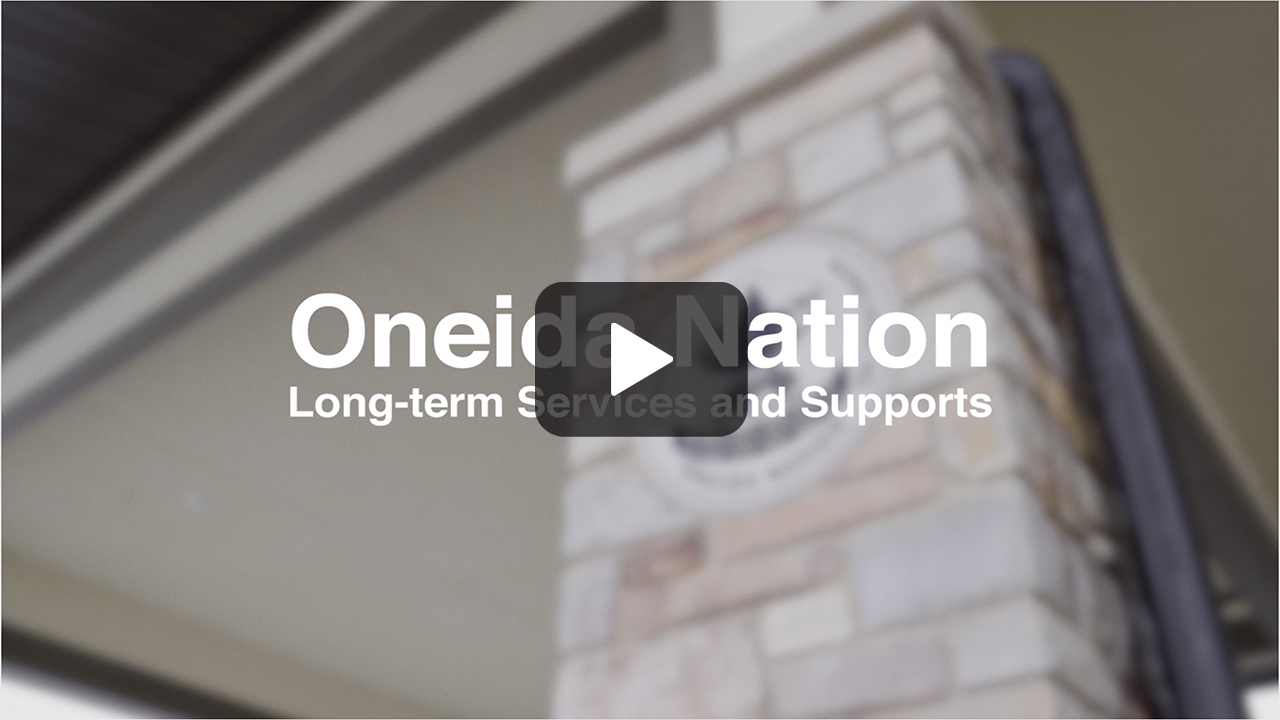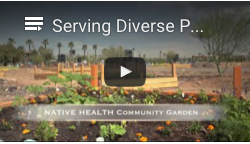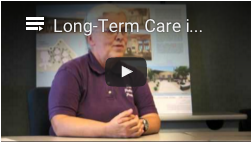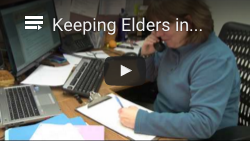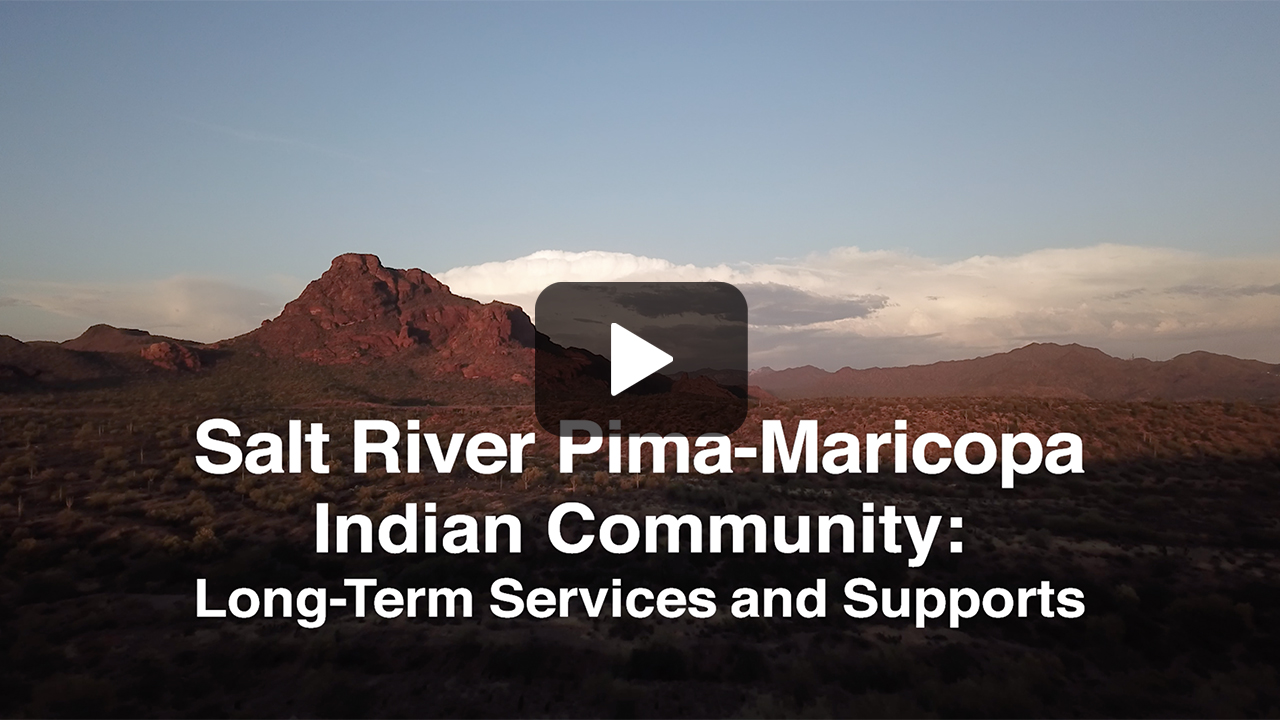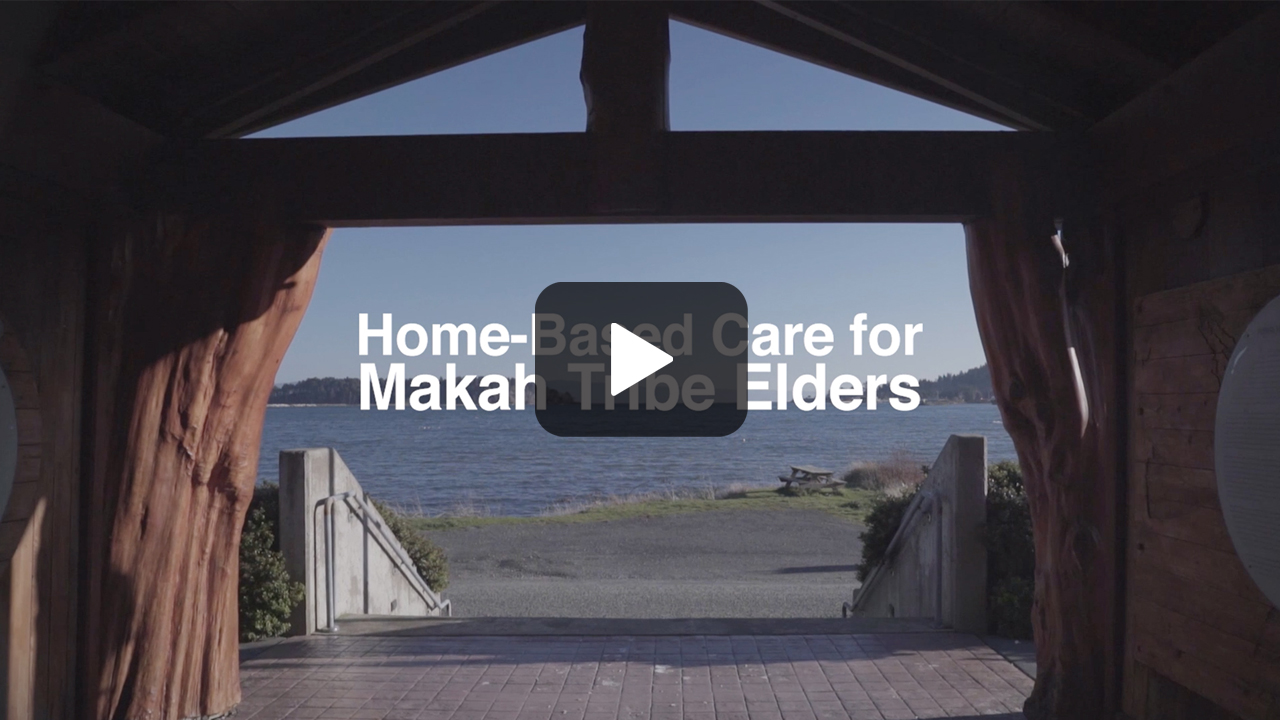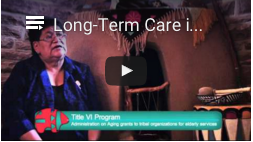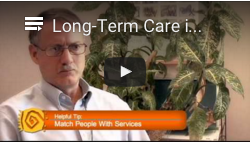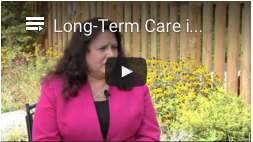LTSS Videos
Guidance for community officials and interested parties in building a successful Long-Term Services and Supports Technical Assistance Center program.
Drawing from interviews with tribal health experts, community planners, elders, and caregivers, these videos highlight the benefits of LTSS and show examples of successful LTSS programs.
Benefits of LTSS
How Can LTSS Benefit My Community?

Learn how LTSS programs—at home, in the community, and in care facilities—improve the lives of tribal elders and people with disabilities.
Recent LTSS Program Examples
Awe Kualawaache Care Center
Hear community members and nursing home staff share their thoughts on the privilege of caring for and connecting with resident elders at the Awe Kualawaache Care Center in Crow Agency, Montana.
Dementia Initiatives and Resources for Native Families and Communities
These videos showcase efforts of the International Association for Indigenous Aging (IA2) around Alzheimer’s disease and related dementias.
Overview of Work by IA2
Hear how IA2 addresses the need for culturally appropriate resources on the topic of dementia.
Early Signs of Dementia
Learn about resources that IA2 offers to help people recognize the early signs of dementia.
Caregiving Challenges
Hear about some of the challenges that come with providing care for a loved one who has dementia.
Hear about work on the Wandering Project with the Pyramid Lake Paiute Tribe in northern Nevada.
Dementia-Friendly Communities
Learn about efforts to educate communities about what dementia is and how it affects people.
Hear about resources that IA2 offers to spur creation of dementia-specific tribal laws, plans, and policies.
Healthy Cognitive Aging
Hear about resources that IA2 provides to promote healthy cognitive aging across Indian Country.
LTSS and COVID-19
Hear about strategies for supporting the physical, spiritual, and emotional health of tribal care facility residents and staff in the context of COVID-19.
COVID-19 in Indian Country: Updated Considerations and Resources for LTSS
Time: 4:38
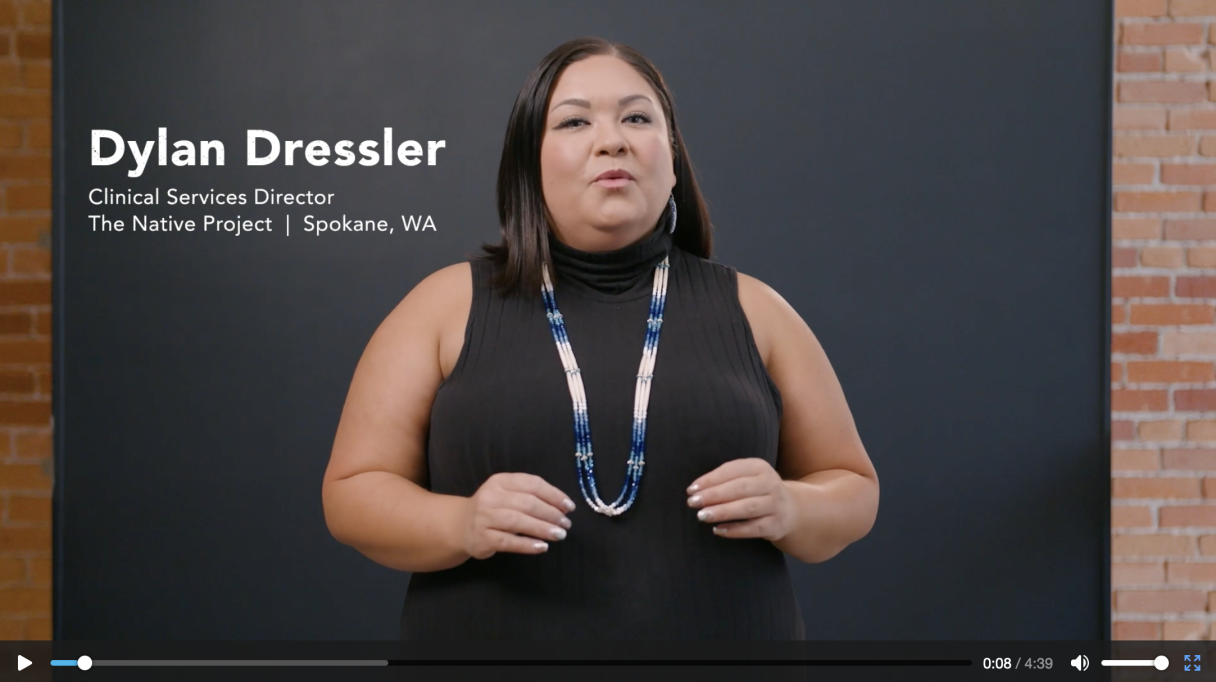
What Works for Tribal LTSS Programs
- These videos bring together experts from different tribal LTSS programs to present successful strategies.
What Works for Us: Building Partnerships and Coordinating Services
Time: 4:11Most LTSS programs are stitched together from state and federal funding sources, community services, and different types of tribal support. "There's always a way" to fill gaps in services, explains an experience health administrator in this video
Read about how Pueblo of Zuni’s LTSS Network collaborates across multiple community programs, CMS, and IHS.
What Works for Us: Culture and Community
Time: 4:19Involving elements of tribal cultures, such as Native languages, ceremonies, and traditional foods, can enhance LTSS programs. In this video, tribal health care leaders discuss how they incorporated culture into their programs.
Learn promising practices from tribal nursing homes on how they include cultural considerations in care.
What Works for Us: Staff Hiring and Retention
Time: 3:55Locations can be remote and paychecks are sometimes low, but experienced administrators of tribal LTSS programs know how to hire and keep good employees. In this video, they share some solutions to these challenges.
Learn about planning and implementation steps for LTSS programs, including how to plan for staffing.
What Works for Us: State and Federal Relationships
Time: 3:59Much of the funding needed for LTSS comes from state and federal sources. Here, experienced tribal planners and administrators describe challenges and rewards of forming good working relationships with state and federal officials and agencies.
Learn more about building relationships with state and federal partners.
Program examples
- These videos highlight several tribal LTSS programs, with those involved in the programs sharing their challenges and successes in meeting the needs of elders and those with disabilities in their communities.
Confederated Tribes of the Colville Reservation Convalescent Center
Time: 2:18Colville Tribes’ Convalescent Center helps ensure that elders and adults with disabilities can receive culturally appropriate care close to home. The facility provides high-quality LTSS while preserving residents' dignity.
Learn more about different LTSS program models, including facility-based care.
Oneida Community Health Center
Time: 3:10Oneida Nation’s community health center worked with the state of Wisconsin to switch from a fee-for-service program to managed care to offer a full range of services for tribal elders and adults with disabilities.
Learn more about Oneida Nation's Family Care program, which also provides LTSS.
Phoenix Native Health: Serving Diverse Populations and Places
Time: 6:53Phoenix Native Health is an urban Indian organization that serves over 300 tribes. It also provides long-term services and supports to the growing senior population among urban Indians in Arizona.
Tohono O'odham Nation's Nursing Care Authority: LTSS in Indian Country
Time: 5:48The Tohono O'odham Nation's Nursing Care Authority (TONCA) coordinates and delivers skilled nursing care, hospice, and other LTSS. TONCA received an All-Stars Award from the Honoring Nations project as an outstanding example of tribal governance. Read the Honoring Nations Profile on TONCA (PDF).
Salt River Pima-Maricopa Indian Community Senior Services Program
Time: 3:13Salt River Pima-Maricopa Indian Community’s Senior Services Program provides culturally sensitive services to its rapidly growing senior population, including meal delivery, exercise programs, transportation, and more.
See what LTSS services tribes commonly provide and why those services are important to tribal communities.
Makah Tribe Health Home Program
Time: 3:19Involving elements of tribal cultures, such as Native languages, ceremonies, and traditional foods, can enhance LTSS programs. In this video, tribal health care leaders discuss how they incorporated culture into their programs.
Learn promising practices from tribal nursing homes on how they include cultural considerations in care.
Pueblo of Zuni: LTSS in Indian Country
Time: 5:35Home- and community-based services are delivered in the Pueblo of Zuni through the coordinated efforts of the Zuni Home Health Care Agency, Zuni Senior Citizen Center, and the Zuni IHS hospital. To learn more about this LTSS network, visit Pueblo of Zuni's profile page.
Oneida Nation of Wisconsin: LTSS in Indian Country
Time: 6:47The Oneida Nation worked with the State of Wisconsin to create a "win-win" solution for the state and tribe through a reimbursement scenario called 100% FMAP. The Oneida Nation uses needs assessments and research to inform care delivery. To learn more about this program, visit the Oneida Nation's profile page.
Issued by: Centers for Medicare & Medicaid Services (CMS)
Issue Date: February 03, 2020
HHS is committed to making its websites and documents accessible to the widest possible audience, including individuals with disabilities. We are in the process of retroactively making some documents accessible. If you need assistance accessing an accessible version of this document, please reach out to the guidance@hhs.gov.
DISCLAIMER: The contents of this database lack the force and effect of law, except as authorized by law (including Medicare Advantage Rate Announcements and Advance Notices) or as specifically incorporated into a contract. The Department may not cite, use, or rely on any guidance that is not posted on the guidance repository, except to establish historical facts.


